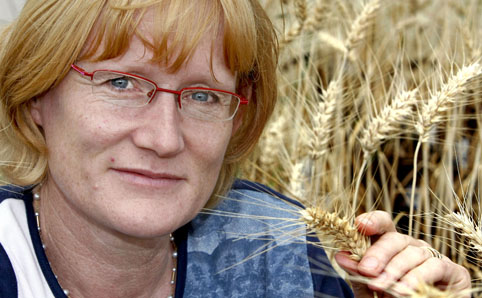Latest News Archive
Please select Category, Year, and then Month to display items
![]()
After South Africa’s battle with the record-breaking drought of 2015, Prof Andries Jordaan from our Disaster Management Training and Education Centre for Africa(DiMTEC) saw room for improvement in dealing with this kind of disaster.
Drought impact
Commercial farmers who are usually net exporters of food crops and communal farmers who own the bulk of the country’s livestock, were all hit hard in 2015. Most of the latter had no resources to spare as the drought progressed. The concern about the drought’s impact on the country’s food production and availability resulted in a joint goal of preventing food scarcity during future droughts.
Prof Jordaan’s visit to the National Drought Mitigation Center (NDMC) in Lincoln, Nebraska, in the US, several years ago prepared him to better equip communities in South Africa to deal with drought situations. “I recognised that in spite of the impact DiMTEC has been able to make on disaster preparedness, a gap remained in disaster response in South Africa.”
Sharing knowledge
In August this year Prof Jordaan again visited the NDMC. This time he requested a few key players in South Africa’s agriculture and disaster response communities to join him. With him were Janse Rabie, head of Natural Resources at AgriSA, a nonprofit organisation that functions as an interface between the government and about 28 000 South Africa farmers, and Moses Musiwale Khangale, director of Fire Services for the South African Ministry of Cooperative Governance and Traditional Affairs.
The South African delegation met with and learnt from climatologists, geospatial technologists, and outreach and planning analysts.
African Union acknowledges one of our own
2012-01-23
 |
|
Prof. Maryke Labuschagne
Photo: Hannes Pieterse
|
The African Union awarded an international award to Maryke Labuschagne, a professor in Plant Breeding at our Faculty of Natural and Agricultural Sciences, for her contribution to science in Africa.
Prof. Labuschagne received the African Union Kwame Nkrumah Scientific award in the category Life Sciences – Continental level. This is the highest level of this prestigious award programme.
The African Union Commission is committed to ensure that science and technology contributes to sustainable development efforts. In 2008 the African Union Commission launched the prestigious African Union Scientific Award Programme. This programme was later renamed the African Union Kwame Nkrumah Scientific awards.
The programme is implemented at National level for young researchers, Regional level for women scientists and is open to all scientists on Continental level.
The Continental level is the highest level of the programme. The objective is to give out scientific awards to top African scientists for their scientific achievements, valuable discoveries and findings.
Prof. Labuschagne has been part of our university for the past 23 years. Over the last 20 years she has been involved in training and educating scientists in plant breeding all over Africa. Her work also entails the development of better cultivars to ensure food sustainability on the continent.
“I really did not expect to win this award. The criteria were really strict and one always sells yourself and your achievements short,” says Prof. Labuschagne.
With this award, Prof. Labuschagne also receives US $100 000 (about R 804 180) in prize money, which will be used to renovate her department’s lab facilities and provide bursaries.
The official award ceremony will be held on Saturday 28 January 2012 at the United Nations Conference Centre in Addis Ababa, Ethiopia.